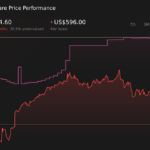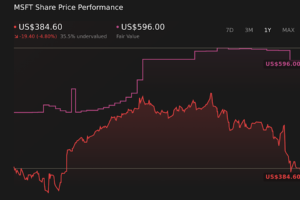Mobile gaming expertise is a must-have for all gaming companies.
The market is already bigger than the console and PC gaming markets combined. Worth $124bn in 2023, mobile gaming revenue will grow to $195bn by 2030, according to GlobalData forecasts.
The integration of artificial intelligence (AI) into mobile games is transforming the gaming experience, making it more immersive, personalised, and engaging. Below, we take a closer look at how AI is being used in mobile gaming.
AI boosts mobile gaming when player numbers are low
The growing pervasiveness of AI technologies, particularly machine learning (ML) and conversational platforms, across various genres enhances the intelligence of non-player characters (NPCs) and delivers richer gaming environments. For example, NPCs are used in multiplayer games such as Call of Duty: Mobile, PUBG Mobile, and Garena Free Fire when the number of players in a particular session is low. This allows gamers to enjoy the game without waiting for other human players to join them.
Call of Duty: Mobile also offers a ‘Practice vs. AI’ mode, allowing gamers to perfect their technique and learn new skills by playing against NPCs. ML tools study a player’s previous interactions with the game and NPCs and update the gameplay based on their approach and strategy. Honor of Kings offers a similar mode, which uses Tencent‘s neural network technology to help mobile esports players practice and improve their skills.
Voice chat is a growing trend in mobile games of various genres, primarily multiplayer titles such as PUBG Mobile, Call of Duty: Mobile, and Mobile Legends: Bang Bang, allowing players to communicate in real-time. Tools that use natural language processing (NLP) will gain prominence over the next two years as demand for voice-enabled communication, both between players and between players and fans (in esports), grows.
Access the most comprehensive Company Profiles on the market, powered by GlobalData. Save hours of research. Gain competitive edge.

Thank you!
Your download email will arrive shortly
We are confident about the unique quality of our Company Profiles. However, we want you to make the most beneficial decision for your business, so we offer a free sample that you can download by submitting the below form
By GlobalData
Visit our Privacy Policy for more information about our services, how we may use, process and share your personal data, including information of your rights in respect of your personal data and how you can unsubscribe from future marketing communications. Our services are intended for corporate subscribers and you warrant that the email address submitted is your corporate email address.
Generative AI helps game studios create personalised content for their users
Generative AI allows game developers to continuously generate content, meaning gaming content will remain fresh. Players can play a game for years and experience it as new every time, thanks to tools like Story Machines, which analyse player behaviour and choices to generate storylines and narrative elements dynamically.
Generative AI will help game studios create personalised content for their users, and gaming companies and game engine providers will increasingly invest in no-code AI tools that use natural text prompts instead of complex codes. This will help game studios overcome a key challenge: the speed of game development. For instance, Versed and OpusAI offer generative AI tools for developers to create game narratives and in-game assets.
Prominent gaming companies are also using generative AI to improve NPCs. NetEase’s Justice Mobile offers life-like NPCs that can communicate in natural language with players, demonstrating a programmed personality instead of relying on scripted interactions.
In March 2023, Ubisoft launched Ghostwriter, a generative AI tool that allows developers to create draft dialogue for NPCs. NVIDIA also introduced its Avatar Cloud Engine (ACE) in May 2023. The NPC can understand context and interact with players using generative AI. In January 2024, Nvidia announced that Ubisoft, Tencent (Riot Games), MiHoYo, NetEase, and Ourpalm use AI tools to create more realistic NPCs.
While generative AI is fascinating, it also carries risks for gaming companies
Generative AI will accelerate the creation of game prototypes, reduce testing time, and aid enhancement on the fly. Consequently, more studios will be created, with fewer developers and more AI tools, which, in turn, will increase the volume of games released per year.
However; generative AI could create new copyright issues, as tools could use developers’ work without permission to create content.
Generative AI is still in its infancy and has yet to prove its long-term value to the gaming industry. It must deliver new benefits to game developers and gamers if it is to maintain interest once the hype has died down. Therefore, it is crucial to approach AI technologies with caution and ensure they are used ethically.








